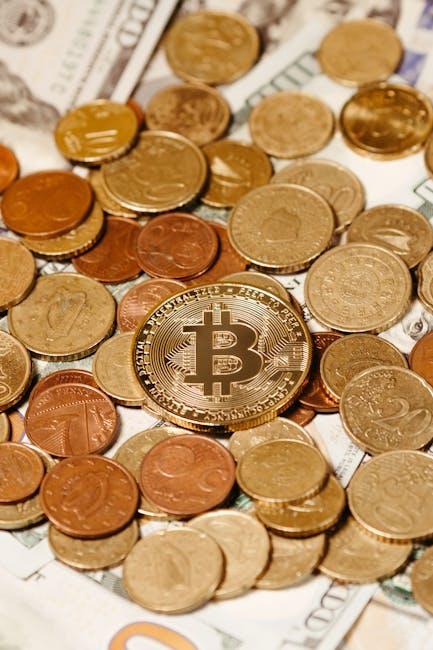In the intricate dance of modern dating, where first impressions are crafted from a delicate balance of words and gestures, the question of whether to disclose one’s financial status on a first date looms large. In a world where apps and algorithms often dictate romantic connections, the lines between transparency and discretion can blur, leaving many to ponder the role that financial disclosure should play in budding relationships. As we explore this nuanced topic, we delve into the potential benefits and pitfalls of discussing money matters early on, offering insights that could help daters navigate the complex interplay between love and finances. Whether you’re an open book or prefer to keep certain chapters closed, this exploration seeks to illuminate the paths available to those embarking on the journey of love in the 21st century.
Navigating the Money Talk on First Dates
When you’re just getting to know someone, the delicate dance of sharing personal details can feel like walking a tightrope. Discussing financial status on a first date can be particularly tricky. While some might argue that understanding each other’s financial perspectives early on can help gauge compatibility, others believe it’s best to keep the conversation light and focus on getting to know the person beyond their bank balance. Here are some points to consider:
- Assess the context: If the conversation naturally veers towards life goals and future aspirations, it might feel appropriate to touch on financial perspectives. However, forcing the subject can come off as intrusive.
- Focus on values: Instead of directly discussing income or savings, consider discussing financial values or priorities. For instance, you could talk about travel experiences or long-term goals, which indirectly reflect how you view money.
- Respect privacy: Understand that everyone has their comfort level when it comes to financial disclosure. It’s crucial to respect boundaries and avoid prying into sensitive areas too soon.
Ultimately, the key is to gauge the comfort level of both parties and let the conversation flow naturally. Financial discussions don’t need to be a first-date priority but can be explored as the relationship develops.

Understanding the Impact of Financial Disclosure
When embarking on a first date, the conversation can traverse various topics, yet the mention of financial status often hangs in the balance between curiosity and discomfort. The implications of disclosing one’s financial situation can be multifaceted, influencing both perception and future dynamics. Here are some potential impacts to consider:
- Perception of Intentions: Revealing financial status might inadvertently steer the conversation towards materialistic perceptions. While some may appreciate transparency, others might question the motivations behind the disclosure.
- Level of Comfort: Discussing finances can either build trust or create an unwelcome pressure, especially if the financial situations are starkly different. It’s essential to gauge the comfort level of both parties before delving into such topics.
- Foundation for Expectations: Early financial discussions might set a precedent for future expectations, whether it pertains to lifestyle choices or shared responsibilities.
Understanding these nuances can help navigate the delicate balance between openness and discretion, ensuring that the conversation remains genuine and respectful.
Balancing Honesty and Privacy in Early Dating
Navigating the delicate dance between transparency and personal boundaries during the initial stages of dating can be challenging. When it comes to discussing finances, it’s essential to strike a balance that respects both honesty and privacy. Understanding the context of your date can help guide this decision. For instance, if the conversation naturally drifts towards career goals or lifestyle aspirations, it might be an appropriate moment to lightly touch upon financial aspects without delving into specifics.
Consider these guiding principles when deciding how much to share:
- Focus on Values: Instead of exact figures, discuss financial philosophies or values. Are you a saver or a spender? This can reveal a lot about compatibility without sharing sensitive details.
- Gauge Comfort Levels: Pay attention to how open your date is about their own life. If they are sharing personal stories, it might be a signal that they are comfortable with deeper conversations.
- Keep it Light: Early dating is about getting to know each other in a relaxed setting. Avoid making the conversation feel like a financial disclosure meeting.
Ultimately, the key is to communicate in a way that feels genuine to you while maintaining a level of discretion that suits the early stage of the relationship.

Practical Tips for Discussing Finances with New Partners
When navigating the delicate dance of early relationship conversations, it’s crucial to approach the topic of finances with tact and openness. Here are some practical tips to help ease into these discussions:
- Choose the Right Moment: Timing is everything. Look for natural opportunities to discuss financial habits, like when planning a trip or deciding on a gift.
- Be Honest, but Tactful: Share your financial situation without overwhelming your partner. A simple statement like, “I’m working on saving for a house,” can open up the dialogue.
- Focus on Values, Not Numbers: Instead of diving into exact figures, talk about financial goals and priorities. Discussing how you manage money can reveal more about compatibility than a balance sheet ever could.
- Encourage Open Dialogue: Create a space where both parties feel comfortable discussing finances without judgment. This sets a foundation for trust and transparency.
By weaving these tips into your interactions, you create a strong base for financial discussions that can grow alongside your relationship.








